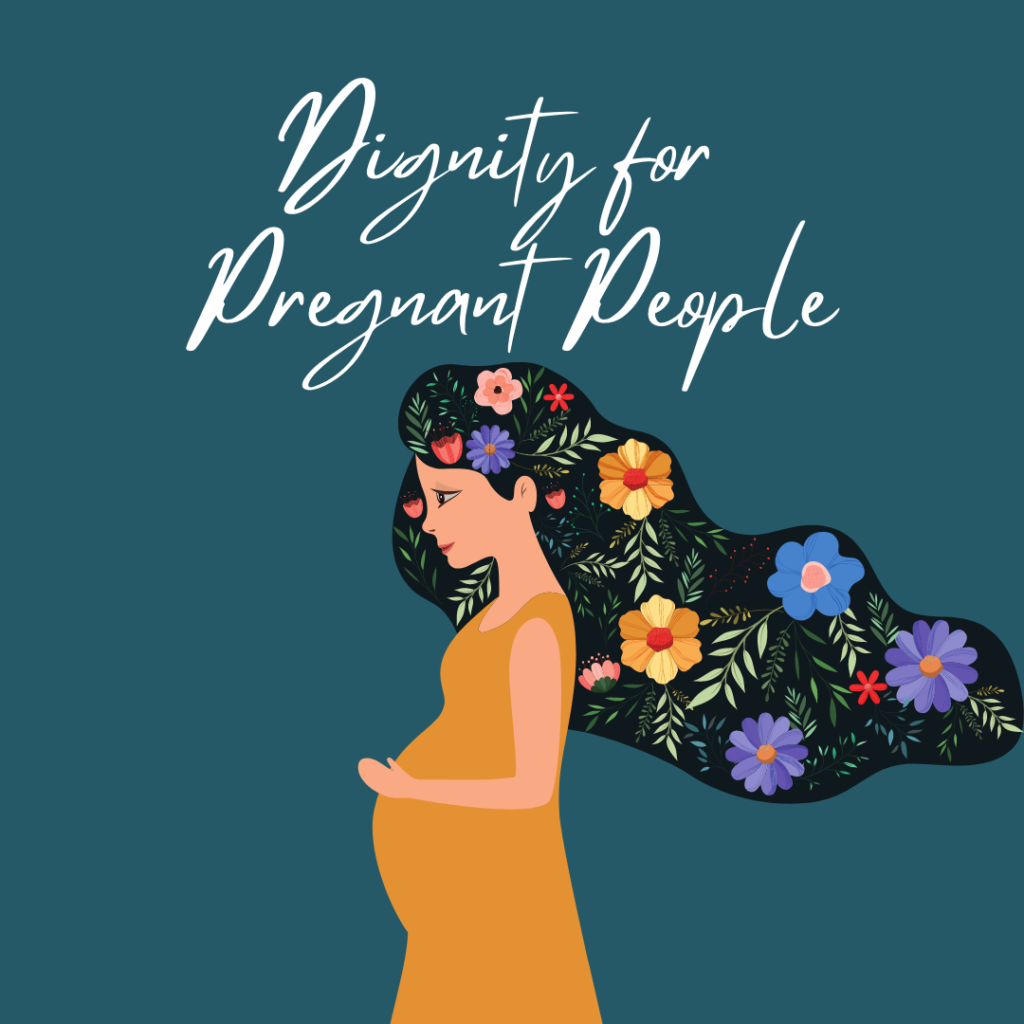By Leila Halperin
As the number of women incarcerated in North Carolina has increased, so has the number of incarcerated pregnant people. This rise correlates with the high prevalence of reproductive rights violations in the North Carolina prison system. In fact, the treatment of incarcerated women often breaches medical advice (What’s Next in the Fight for Reproductive Justice for Incarcerated Women), specifically with the use of restraints during the second and third trimester of the pregnancy. Many incarcerated pregnant women are also forced to live in conditions akin to solitary confinement, which is highly damaging for the mother and the baby. For example, pregnant people are often only allowed to leave their cells to shower three times a week, permitted one hour of exercise out of the cell per day, are not allowed to have contact visitation, and typically aren’t permitted to eat meals outside of their cell (Hayes, Crystal, et al). Furthermore, until recently, incarcerated women could be shackled during childbirth. Shackling during labor can be very dangerous, as it increases the risk of falling which could harm the baby. Several health organizations, such as the American Medical Association and the American College of Obstetricians and Gynecologists, have strongly condemned this practice (What’s Next in the Fight for Reproductive Justice for Incarcerated Women).
Many organizations and individuals to are lobbying for change. In 2018, Prison director Kenneth Lassiter announced a new policy that would discontinue the practice of shackling incarcerated individuals once they are in labor, unless they pose a threat to themselves or others or if there is an immediate risk of escape (North Carolina Ends Shackling of Inmates During Childbirth). Omisade Burney-Scott of SisterSong cites this policy as a small win since incarcerated women can still be held in shackles during pregnancy, prenatal, lactation, and breastfeeding. SisterSong is a southern-based organization that works to improve institutional systems and policies that affect the reproductive rights of marginalized people. This organization raises awareness about reproductive justice, as well as facilitates reproductive justice training sessions. The training programs focus on reproductive oppression, intersectionality, current reproductive justice issues, and work, and much more (“RJ Training & Leadership Development).
The fight for reproductive justice, especially with incarcerated women, has also extended into the legal field. North Carolina House Representatives Kristin Baker, Ashton Clemmons, Donna White, and Kyle Hall have sponsored the bipartisan House Bill 608, Dignity for Women Who are Incarcerated Act. This act improves the reproductive rights for incarcerated women by prohibiting practices like shackling during the second and third trimester of pregnancy, as well as requires certain measures such as allowing the newborn to be with the mother for at least 72 hours (HB 608 – Dignity for Women Who Are Incarcerated Act). This bill was filed in the North Carolina House of Representatives on April 20, 2021 and passed the first reading. The bill has now been referred to the Health Committee. If it ultimately passes, this act could help improve the prison conditions for more than just incarcerated pregnant women, as part of this legislation mandates that the Department of Public Safety ensures that adequate menstrual products are available.
The current conditions for incarcerated women need much improvement. The use of shackles during pregnancy needs to be limited, restrictive confinement for incarcerated pregnant and postpartum women must be prohibited, and the Department of Public Safety must ensure that prisons are providing sufficient reproductive products. The Dignity for Women Who are Incarcerated Act would help improve the circumstances and quality of life for incarcerated women.

Works Cited
- Hayes, Crystal, et al. “Pregnant Women in North Carolina Prisons Are Being Kept in Solitary Confinement.” Ms. Magazine, 7 Dec. 2019, msmagazine.com/2019/10/23/pregnant-women-in-north-carolina-prisons-are-being-kept-in-solitary-confinement/.
- HB 608 – Dignity for Women Who Are Incarcerated Act | North Carolina Medical Society. https://www.ncmedsoc.org/hb-608-dignity-for-women-who-are-incarcerated-act/. Accessed 26 Apr. 2021./.
- “North Carolina Ends Shackling of Inmates during Childbirth.” The Guardian, 28 Mar. 2018, http://www.theguardian.com/us-news/2018/mar/28/north-carolina-ends-shackling-of-inmates-during-childbirth.
- “RJ Training & Leadership Development.” Sister Song, https://www.sistersong.net/rj-training-and-leadership-development-programs. Accessed 26 Apr. 2021.
- “Sistersong On North Carolina’s Ban On Shackling Pregnant Inmates.” NowThis News, https://nowthisnews.com/videos/her/sistersong-on-north-carolinas-ban-on-shackling-pregnant-inmates. Accessed 26 Apr. 2021.
- The North Carolina Perinatal Health and Incarceration Working Group.” UNC Collaborative for Maternal & Infant Health, https://www.mombaby.org/north-carolina-perinatal-health-incarceration-working-group/. Accessed 26 Apr. 2021.
- What’s Next in the Fight for Reproductive Justice for Incarcerated Women. https://msmagazine.com/2018/04/24/the-fight-to-protect-pregnant-women-from-being-shackled-in-north-carolina-prisons-and-across-the-u-s/. Accessed 25 Apr. 2021.What’s Next in the Fight for Reproductive Justice for Incarcerated Women. https://msmagazine.com/2018/04/24/the-fight-to-protect-pregnant-women-from-being-shackled-in-north-carolina-prisons-and-across-the-u-s/. Accessed 25 Apr. 2021.